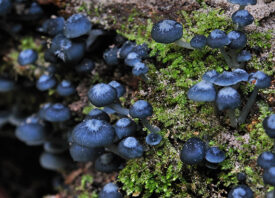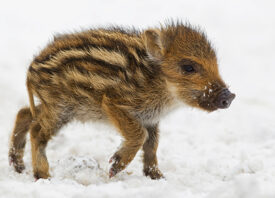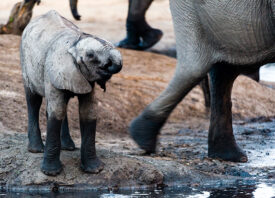Search this site
Magical Jellyfish Photographed by Marine Biologist Alexander Semenov
Moscow-based photographer and marine biologist Alexander Semenov is willing to do anything to get the perfect shot, including diving into the icy depths of the White Sea that runs along the northwestern coast of Russia.
Since graduating from Lomonosov Moscow State University in 2007 with a degree in Zoology, Semenov has continued to nurture his fascination with invertebrates by joining and ultimately serving as the head of the university’s White Sea Biological Station’s diving team. On every excursion, he brings his camera, outfitted with housing and strobes for underwater shooting.
From the shadowy chasms of the deep, Semenov brightens the fiery tentacles of the lion’s mane jellyfish, many of which float on for nearly fifty feet. Its pray, the moon jellyfish or aurelia aurita, are dragged along within its many stomachs or continue to sail free another day. These magnificent creatures, composed almost entirely of water, thrive in frigid conditions, sometimes below sheets of ice. Although they do not have brains, they operate with a nervous system that is sensitive to light, scent, and other external factors.
The photographer sets his sights not only on academic research but on educating a larger global population about the beauty of the sea and its inhabitants. In the wake of climate change and habitat destruction, the marine population faces an uncertain future; with Semenov’s help, we are given the opportunity to recognize the critical importance of these miraculous animals, who populated this planet millions of years before we humans came into the picture.
All photos featured in this post can be found on Offset, a new curated collection of high-end commercial and editorial photography and illustration from award-winning artists around the world. Offset is a category partner on Feature Shoot.












